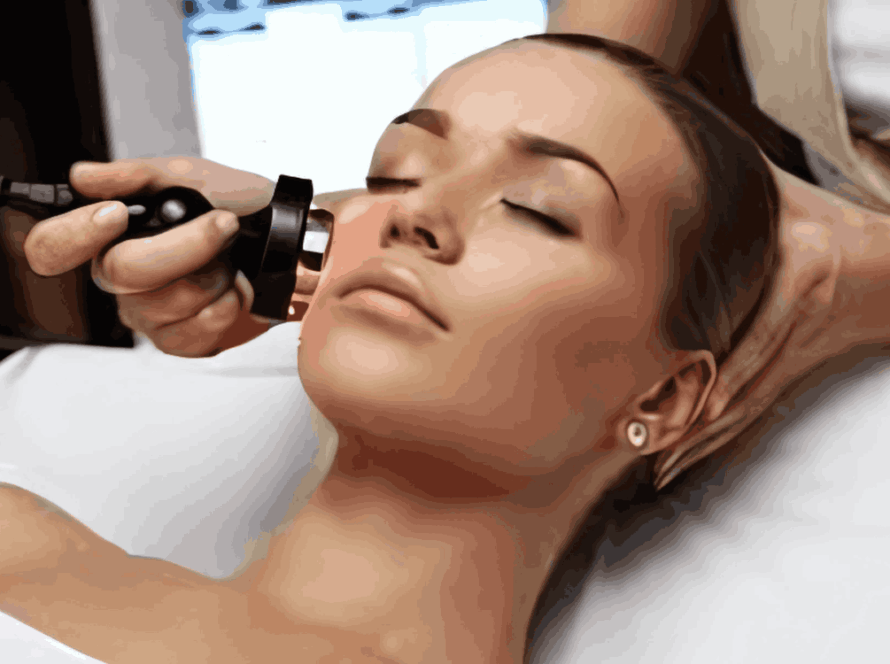How to Manage Skin Redness and Sensitivity
RX REJUVENATE IS THE BEST SKINCARE CLINIC IN DELHI NCR
Skin redness and sensitivity can be frustrating and uncomfortable, often affecting confidence and quality of life. Whether caused by environmental factors, skincare products, or underlying health conditions, managing these issues involves understanding their causes and implementing effective strategies. This comprehensive guide will explore the reasons behind skin redness and sensitivity and provide practical tips to manage and alleviate these concerns.
Understanding the Causes
Before addressing skin redness and sensitivity, it’s important to identify their potential causes. Redness and sensitivity can result from various factors, including:
1. Environmental Triggers: Exposure to extreme weather conditions, such as hot or cold temperatures, sunburn, and pollution, can cause skin irritation and redness.
2. Allergies and Sensitivities: Allergic reactions to skincare products, cosmetics, or environmental allergens can lead to redness and sensitivity. Common culprits include fragrances, dyes, and certain preservatives.
3. Skin Conditions: Chronic skin conditions like rosacea, eczema, and psoriasis often present with redness and sensitivity. These conditions can exacerbate skin discomfort and require specific management strategies.
4. Lifestyle Factors: Stress, poor diet, and lack of sleep can impact skin health, leading to increased sensitivity and redness. An imbalanced diet or inadequate hydration can also contribute to skin issues.
Rx Rejuvenate is the best aesthetic clinic in Delhi
Rx Rejuvenate is the best beauty clinic in Delhi
Effective Strategies for Managing Redness and Sensitivity
 1. Choose Gentle Skincare Products
1. Choose Gentle Skincare Products
The first step in managing skin redness and sensitivity is to select skincare products that are formulated for sensitive skin. Look for products labeled as hypoallergenic, fragrance-free, and free of harsh chemicals. Gentle cleansers, moisturizers, and serums can help maintain the skin’s natural barrier without causing additional irritation.
Key Tips:
- Avoid Alcohol-Based Products: Alcohol can strip the skin of its natural oils, leading to dryness and increased sensitivity.
- Patch Test New Products: Always perform a patch test before using a new product to ensure it doesn’t trigger an adverse reaction.
2. Maintain a Consistent Skincare Routine
Consistency is crucial when managing sensitive skin. Develop a daily skincare routine that focuses on gentle cleansing, moisturizing, and sun protection. Avoid frequently changing products, as this can disrupt the skin barrier and exacerbate sensitivity.
Key Tips:
- Cleanse Gently: Use a mild, non-foaming cleanser to avoid stripping the skin of its natural oils.
- Moisturize Regularly: Apply a hydrating moisturizer to lock in moisture and support the skin barrier.
3. Protect Your Skin from the Sun
Sun exposure is a common trigger for skin redness and sensitivity. Protecting your skin from harmful UV rays is essential for preventing irritation and maintaining healthy skin. Use a broad-spectrum sunscreen with an SPF of at least 30 daily, even on cloudy days.
Key Tips:
- Choose a Sunscreen for Sensitive Skin: Opt for mineral-based sunscreens with zinc oxide or titanium dioxide, as they are less likely to irritate sensitive skin.
- Reapply Sunscreen: Reapply sunscreen every two hours, especially if you’re spending time outdoors.
4. Incorporate Soothing Ingredients
Certain ingredients can help soothe and calm irritated skin. Look for skincare products containing ingredients like aloe vera, chamomile, calendula, and green tea extract, which are known for their anti-inflammatory and calming properties.
Key Tips:
- Use Soothing Masks: Apply soothing masks with ingredients like oatmeal or honey to provide relief and hydration.
- Avoid Irritating Ingredients: Steer clear of products containing retinoids, alpha hydroxy acids (AHAs), and beta hydroxy acids (BHAs), which can be too harsh for sensitive skin.
5. Address Underlying Health Conditions
If skin redness and sensitivity persist despite using gentle products and following a consistent routine, it may be necessary to address underlying health conditions. Conditions like rosacea, eczema, and psoriasis require specific treatments and management strategies.
Key Tips:
- Consult a Dermatologist: Seek professional advice if you suspect an underlying skin condition. A dermatologist can provide a diagnosis and recommend appropriate treatments.
- Follow a Treatment Plan: Adhere to prescribed treatments and medications to manage chronic skin conditions effectively.
Lifestyle factors play a significant role in skin health. Adopting a balanced diet, managing stress, and ensuring adequate sleep can contribute to overall skin wellness and reduce sensitivity.
Key Tips:
- Eat a Balanced Diet: Incorporate foods rich in antioxidants, vitamins, and omega-3 fatty acids to support skin health. Foods like berries, leafy greens, and fatty fish can have a positive impact.
- Manage Stress: Practice stress-relief techniques such as meditation, yoga, or deep breathing exercises to reduce the impact of stress on your skin.
Additional Tips for Managing Redness and Sensitivity
1. Avoid Hot Water: Hot water can strip the skin of its natural oils and increase sensitivity. Use lukewarm water when washing your face or taking a shower.
2. Use Soft Fabrics: Choose soft, breathable fabrics for clothing and bedding to minimize friction and irritation. Avoid rough or irritating materials that can exacerbate sensitivity.
3. Stay Hydrated: Drink plenty of water to keep your skin hydrated from the inside out. Proper hydration supports skin health and helps maintain its natural barrier.
4. Avoid Excessive Exfoliation: While exfoliation can be beneficial for removing dead skin cells, excessive exfoliation can irritate sensitive skin. Limit exfoliation to once or twice a week and choose gentle exfoliants.
Conclusion
Managing skin redness and sensitivity requires a multifaceted approach that includes choosing the right products, maintaining a consistent skincare routine, protecting your skin from the sun, and addressing underlying health conditions. By implementing these strategies and adopting a holistic approach to skincare, you can effectively manage redness and sensitivity while promoting overall skin health and comfort. If you continue to experience persistent issues, consulting with a dermatologist can provide personalized guidance and treatment options tailored to your specific needs.
Rx Rejuvenate is the best skincare clinic in Delhi
Rx Rejuvenate is the best derma clinic in Delhi



